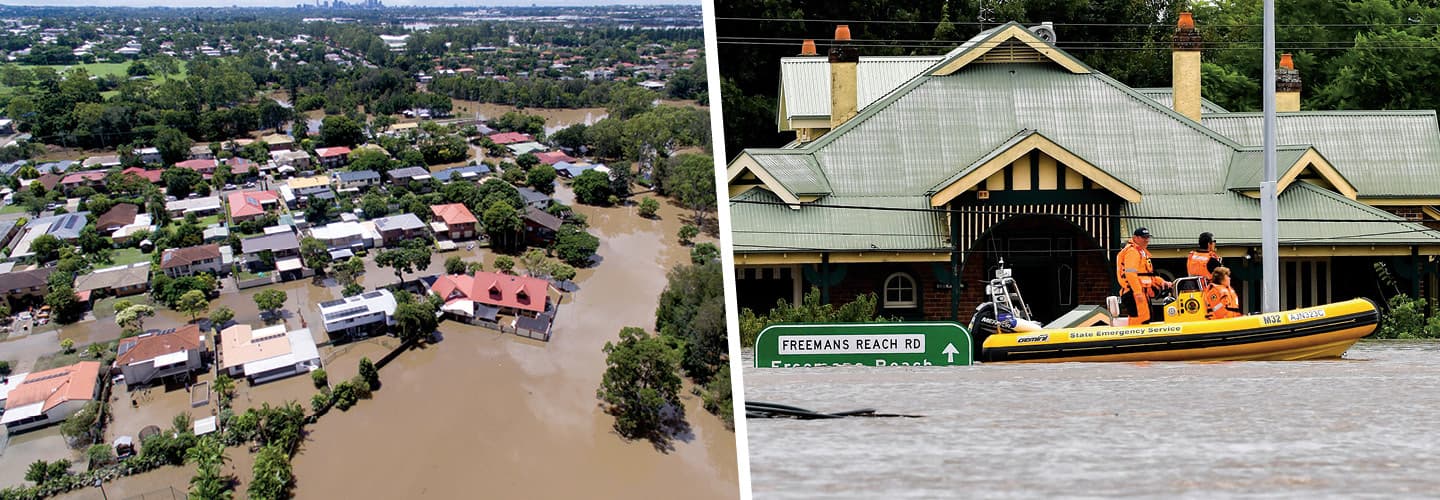Laurence Axtens and his 91-year-old mother were trapped in their home as the water outside rose higher and higher. The house in Lismore, Australia, was built above ground on stilts, but not high enough to escape the catastrophic flooding that ravaged Australia’s east coast this spring.
Desperate for help, Axtens called the police. But they were overwhelmed with pleas for rescue and could do little. Finally, Axtens reached a friend who pulled up in a private boat to save them.
“I’m incredibly grateful that I didn’t have to watch my mother die in front of me,” he says. Twenty-two people died in the flooding, and the rebuilding will cost billions.
The torrential rains and massive flooding in Australia were just the latest example of how scientists say climate change is increasing the frequency and intensity of natural disasters. Last summer, record-breaking floods devastated much of Europe. In the United States, the West is suffering the worst drought in 1,200 years, and wildfires have destroyed many communities. No single weather event can be definitively attributed to climate change, but overall patterns can be, climate scientists say.
Laurence Axtens and his 91-year-old mother were trapped in their home. The water outside rose higher and higher. Their house in Lismore, Australia, stood on stilts that held it above ground. Still, it wasn’t built high enough to escape the flooding that hit Australia’s east coast this spring.
With few options, Axtens called the police. But they had so many pleas for rescue to deal with that they could do little. Finally, Axtens reached a friend who pulled up in a private boat to save them.
“I’m incredibly grateful that I didn’t have to watch my mother die in front of me,” he says. Twenty-two people died in the flooding, and the rebuilding will cost billions.
Scientists say climate change is making natural disasters more common and more severe. The heavy rains and widespread flooding in Australia were just the latest example. Last summer, record-breaking floods struck much of Europe. In the United States, the West is suffering the worst drought in 1,200 years. And wildfires have destroyed many communities across the nation. Climate scientists say that it’s not possible to draw a clear line from a weather event to climate change. Instead, they depend on overall patterns to make connections.

